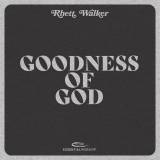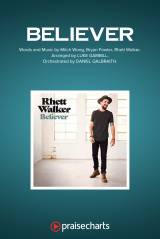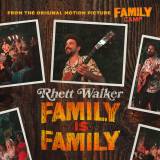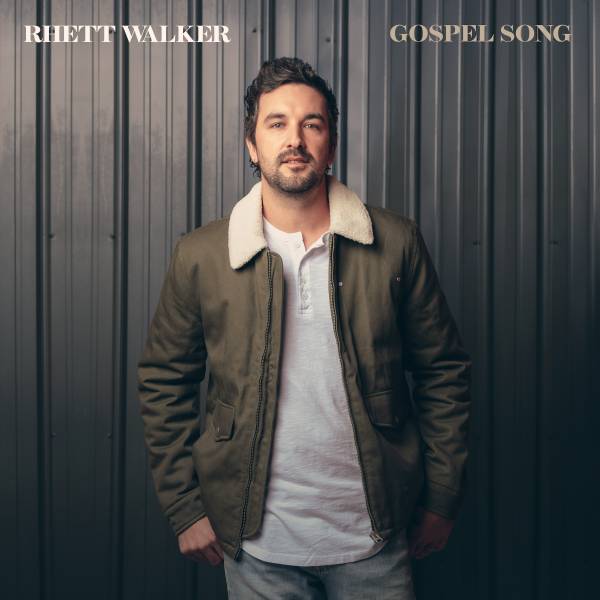
Rhett Walker

Rhett Walker
Popular
About
“I won’t be caged to the status quo. I’m not afraid to stand and say what people won’t.” -Rhett Walker, “Get Up Get Out”
Now there’s an understatement. Rhett Walker is not like any rising Christian musician you have met before or will meet again soon. The outspoken 25-year-old son of a preacher was born and raised around the South, his mellow yet animated voice a sure mix of Georgia and the Carolinas. In that drawl, he tells an intense wild oats story tempered by God’s grace, a testimony that fuels the deep-fried rock and deep- down worship on Rhett Walker Band’s debut, Come To The River.
Indeed, Rhett is a shining example of faith, family, and country values today—an experienced man who teaches that grace comes with a calling, a clear message in his transformative single “When Mercy Found Me.” But nearly a decade ago, no one would have predicted as much.
“We moved away from my hometown when I was 16, and I didn’t like that. I just went nuts, doing whatever I wanted to do in the moment,” he says. “I mixed with the rough crowd, got into fights and drugs. It wasn’t longbefore I was expelled from school—just always in trouble. So they sent me to this Christian school, the only one that would take me, and I met this girl. It wasn’t long after that we found out she was pregnant. That was the stop in the path for me.”
Walker grew up in church; he knew the answers to the questions on Sunday morning better than other kids. He’d gone on to play drums in the praise band, too, but generally just stopped caring. Presented with a ton-of-bricks reality at 17, Rhettcould stay on the downward spiral or step up.
He stepped up.
“It was like, Man, what am I doing?” he remembers. “I’ve still got my senior year left, but I’ll have to leave this religious school where I’mhigh most of the time anyway. My girlfriend’s having a baby, and I haveno job. I finally sat down with April, who is now my wife, and said: We’ve done everything wrong that we possibly can. Let’s do everything right from here on out.”
Rhett and April got married. He rededicated his life to God, and she accepted Jesus for the first time. He got a diploma, and she made their $300-per-month apartment into a home. They welcomed a daughter, Rileigh, and became active in church where Walker began leading worship.
As they matured in faith and expanded their family (a son, Jett, was born two years later), a growing number of opportunities for Rhett to lead worship at other churches and on college campuses helped him let go of his construction and factory work. It was a dream come true.
“I always knew I wanted to do music, but I couldn’t sing as a kid; I was just terrible at it,” he says with a trademark matter-of-factness that is charming and disarming. “So I was a drummer at church growing up until one day they called me out front to sing ‘Grace Like Rain’ by Todd Agnew, and I never went back to the drums. The more I sang the more things started opening up.”
With a bold trust in God that most people—let alone teenage parents—don’t exhibit, Rhett and April chased this calling laid on his heart to pursue music and songwriting. First, they moved six hours away from the security net of local family and friends for him to take a conference-based worship leader position. After that, the next stop was Nashville, where Rhett Walker Band and the grace-themed, movement-inspiring songs for Come To The River would begin to take shape.
“I’ve loved covering Passion songs as a worship leader, but I feel like some of the crazy things I’ve done and need to sing about don’t always fit that mold,” he explains. “So I want to write music that isn’t really congregational worship but still inspires a movement that champions what grace really is. That’s what got me excited about coming to Nashville and doing an album.”
And with so much experience packed into so few years, Rhett Walker had a lot to say about human nature, God’s mercy, and how it should look when those things collide. Like his life, his songs are a gritty and graceful open book, direct statements thickened with Southern rock influences—Third Day, Black Crowes, Lynyrd Skynyrd—and hints of praise, even poetry.
It wasn’t long before his music won independent songwriter contests and gained the attention of Provident Label Group (Third Day, Casting Crowns), who signed Rhett to Essential Records knowing that his no- bones Christian message would reach the heart of the industry as well as the rough edges.“There’s just nothing we can do without grace; we’re all dirty, messed up people, but Christ still loves us,” he says of the drive behind Come To The River. “So there’s two things we must do. One: rejoice, because now we have a purpose on this earth—to share that grace with others. Two: take up the calling. You can’t just take that love and not tell the story that goes with it.”
“Gonna Be Alright” opens the set with a wall of electric guitars that soon falls back to a single acoustic, making space to highlight Rhett’s instantly appealing Mac Powell-meets-Mark Hall voice. The title track follows with a cool country-folk stomp no one would see coming—a brand of wild and free worship that celebrates God’s provision with around-the-campfire abandon.
To get the full sense of Rhett Walker Band, listen to the soaring, “When Mercy Found Me,” a song that radio could get used to fast across every format from adult contemporary to rock.
“That’s the one song on the record that showcases most everything about me, and it just about whooped us,” Rhett admits. “It’s radio friendly, but there’s an edge, and it doesn’t shy away from my story. That old life just about broke me . . . this is my testimony.
” Quoted earlier, “Get Up Get Out” is his status quo-buster; an I’m-going-with-or-without-you call to tell the world what Jesus did. He hopes fellow believers will join him instead of going soft on the defense of God’s absolute truth—a trend Walker sees in today’s church and laments.
“What’s right is right, and what’s wrong is wrong,” he says. “I’m headed to conquer. I want this to be a movement. We have all these other people in the world with non-Christian beliefs that aren’t scared to speak their minds. They don’t hide behind anything; neither should Christians.”
That isn’t to say Walker lacks compassion for people who don’t think like him—it’s quite the opposite in fact on the album’s most defining cut, “Brother,” an introspective worship duet with All Sons & Daughters’ David Leonard. Built upon a mournful steel guitar and escalating toward eternal hope, they sing about how we’re all beggars and thieves in need of the very same grace.
Sure in his purpose and ready to sing about it, Rhett has seen his past mistakes washed clean at the river. The rebellious teenager has become the courageous family man; those two scared kids who did everything wrong just a few years back are, by God’s grace, striving to do everything right and even counseling other couples now. Still leading worship at his home church, Walker is excited to take Come To The River through every door the Lord will open.
“I’m someone living my dream through the grace of God,” he concludes.“I’m blessed with a beautiful wife and two children who have walked with me every step of the way. My faith, my family, and my country are the most important things in my life. Come To The River tells all that.”
Featured Albums
Featured in These Lists

Straight from our arrangers to you. This list is the new release feed for all of our chord charts, sheet music, and multitracks — everything new in one place, all hot off the press. Listen on Spotify. For all the new music released every Friday and each week, check out New Music Friday Worship and New Worship This Week.

This is as up-to-date as it gets. If a new song hits the airwaves and it starts trending fast, chances are you will be able to spot it here. If an old song suddenly spikes because of a unique current event, you'll see that here as well. So get out a bag of popcorn and hit refresh every 10 minutes to watch the race. Listen on Spotify.

We take pride in the precision of our chord charts so that your musicians can sound like a unified band. We put the right chords over the right words, arranged in sections that follow the original recording, measure for measure. Plus, if you want to make any adjustments, you can edit them right inside the site. Your edits will be available by default any time you access the same song in the future! Musicians download our chord charts more than any other product because they are accurate, clear and editable. Here is a list of our top downloaded chord charts for your praise and worship band! Listen on Spotify.

Explore the latest worship songs released this month, bringing fresh perspectives and melodies to your worship experience. These songs inspire connection and reflection, perfect for personal devotion or congregational singing. Download chord charts, lead sheets, orchestrations, and multitracks to support your worship team with new, impactful songs.

Mother's Day occurs every year in America and Canada on the second Sunday of May. As we celebrate mothers everywhere, we give thanks to God for them! Truly honoring mothers on this special day means that you can select a handful of worship songs that still focus on God, even as they reflect the heart and character of mothers. Expand your themes to include words like compassion, honor, faithfulness, love, provision, care, healing, sonship, adoption, comfort, and redemption. These are qualities that mothers bring into our lives. With these themes, you can plan a powerful time of worship that will engage mothers deep within their spirit, reflecting their hearts as you lead your whole congregation in worship to God. Get all the sheet music, chord charts and tracks you need today!

Moderate slow worship songs in 4/4 provide a steady, contemplative pace that's perfect for creating a reflective and worshipful atmosphere. These songs are ideal for themes of surrender, gratitude, and devotion, inviting worshipers to connect deeply with God. Download chord charts, lead sheets, orchestrations, and multitracks to equip your worship team in delivering these moderate slow 4/4 favorites, enhancing your worship service with a peaceful and heartfelt ambiance.












